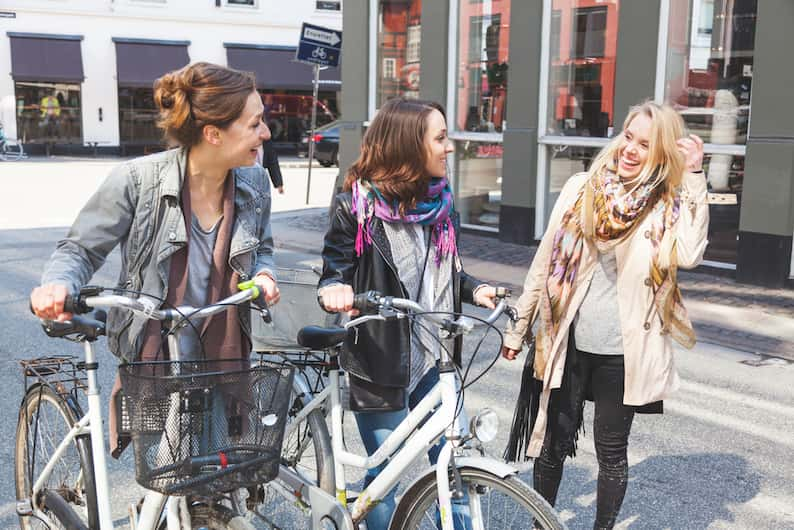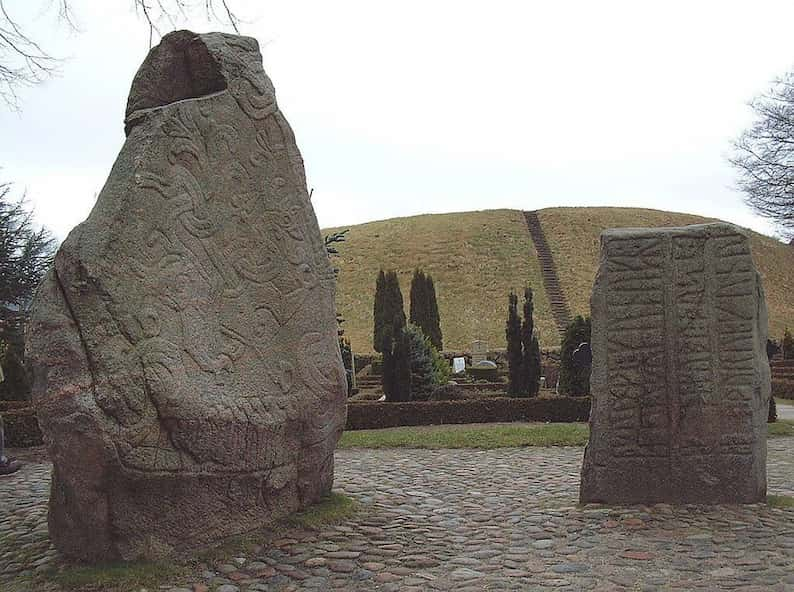Whether you know the people of Denmark for their friendliness, sense of style, internationally renowned food or love of cycling, you can’t go wrong if you’re looking to get to know the citizens of this country a bit better.
But before expanding your social life northward, it’s helpful to know exactly who you’re speaking with. So what do you call a person from Denmark? And what do Danes call themselves and their country? Keep reading to find out!

Table of Contents
What do you call a person from Denmark?
A person from Denmark is called a “Dane” and is considered “Danish”. In the Danish language, someone from Denmark is a “dansker” (a Dane) and is “dansk” (Danish). Two or more Danes are “danskere”, which is the plural form in Danish.
That said, there are many different names for people from different countries, and Denmark is no different. To that end, Danes can also be called Nordic, Scandinavian, Northern European or even Vikings, even if the latter isn’t really accurate any more (or ever, given that the Vikings weren’t only from Denmark).
No matter what you call them, they are sure to be some of the most friendly and welcoming people you will ever meet!
Back to basics: What Do People in Denmark Speak?
What do you call something from Denmark?
Something from Denmark is “Danish” or, in the Danish language, “dansk”. In English, you may have heard of this in the context of, for example, Danish design (a style of design that’s from Denmark) or a Danish pastry.
I’ll get to the issues with referring to Danish pastries below (spoiler alert: they’re not actually Danish!) but one other common issue in terms of how to call something from Denmark often comes up in the context of the Great Dane dog breed.
In fact, the Great Dane isn’t from Denmark at all, having been bred in Germany. It seems this may have come from a French book referring to the breed as a “Grand Danois” (Big Danish) in a 1755 book, which stuck in English (and Danish, for that matter). In German, however, it remains a “Deutsche Dogge”.
Related: Danish vs Dutch: Are They The Same? (+ All the Differences)
Is a Danish a person or a pastry?
It’s both! That is, in English (and other languages), it’s accurate to refer to both a Danish person and a Danish pastry as two separate concepts. Interestingly, though, a Danish pastry isn’t actually Danish, which is why, in the Danish language, they aren’t referred to as such.
Instead, in Danish (and similarly in other Scandinavian languages), a Danish pastry is a “wienerbrød” or, literally, a Viennese bread. The reason for this is that while this type of pastry became famous in Denmark, it was actually invented by Austrian bakers who came to Denmark due to a strike by bakery workers in Denmark.
(You can find out more here: Danish Bread (Rugbrød) and Pastries: The Ultimate Guide)

(Similarly, in German, a Danish pastry is a “Kopenhagener”. You can probably see how this follows a similar line of origin based on the capital of Denmark.)
This means that it’s entirely accurate and not at all offensive to use the word Danish when referring to a person from Denmark or the delicious pastry!
Want to learn about other classic Danish food? Check out our guide to stenbiderrogn, otherwise known as Danish caviar!
What do Danes call Denmark?
The word for Denmark in the Danish language is “Danmark”. This comes from the Old Norse word “Danmǫrk”, which refers to the marches – or borderlands – of the Danes. The first recorded use of this term in Danish is found on the two Jelling stones erected around 955 and 965 AD.
The Jelling Stones were erected by Gorm the Old and Harald Bluetooth (yes, the name that was given to the technology 1,000+ years later). However, there have been earlier references to this territory found outside of Denmark.
Specifically, Alfred the Great was king of Wessex in the years 871–899, during which time he wrote about the travels of Ohthere of Hålogaland, a Norwegian seafarer who recounted the story of his travels throughout the Nordics to Alfred. During these travels, “Denmark [Denamearc] was on his port side… And then for two days he had on his (port side) the islands which belong to Denmark”.

It’s also worth mentioning that it’s been suggested that the term “Denmark” in English may have a different meaning, despite how similar it looks to “Danmark”. That is, the “den” part of the word in English may mean “low grounds”, meaning that “Denmark” comes from the term for “low lying borderlands”. “Dan” in “Danmark” does not have this same meaning, as it’s thought to be derived from a medieval Scandinavian king called Dan.
Are Dutch and Danish the same?
No, Dutch and Danish are not the same. While they are both Germanic languages, they are not mutually intelligible, meaning that speakers of one language cannot understand speakers of the other language. Additionally, the Netherlands and Denmark are two different countries with their own distinct cultures and customs.
This confusion can arise in English given that the two sound quite similar. However, it’s not the case in their native tongues.
As mentioned, the term “Danish” in the Danish language is “dansk”. However, the term “Dutch” in the Dutch language is “Nederlands” (and, for what it’s worth, the term “Danish” in Dutch is actually “Deens”). This shows that while there may be similarities in the words in English, those same similarities don’t carry over into each language.
What are residents of Copenhagen called?
Residents of Copenhagen are called “Copenhageners”. In Danish, they are “københavner” in line with the word for Copenhagen in Danish being “København”.
If you’re not familiar with the Danish language, those two Danish words definitely aren’t pronounced how they look. Fortunately, people in the capital of Denmark, Copenhagen – and people in Denmark more generally – speak excellent English and so will be completely fine if you simply refer to them as “Copenhageners”, should it come up in conversation.
(And if you ask them the best city to live in Denmark, their answer probably won’t surprise you.)
